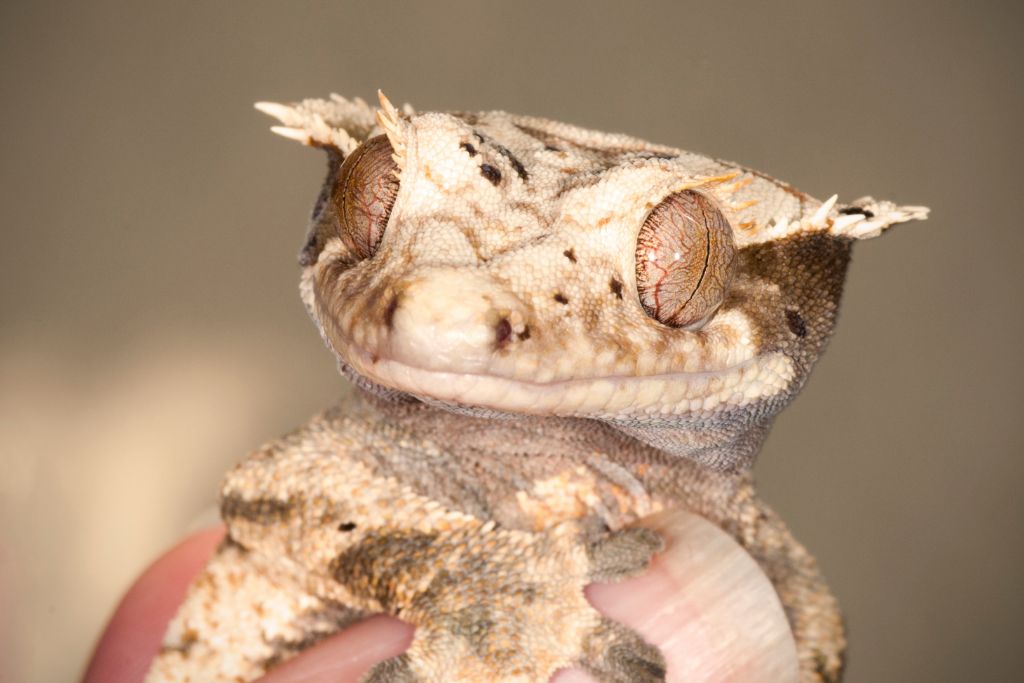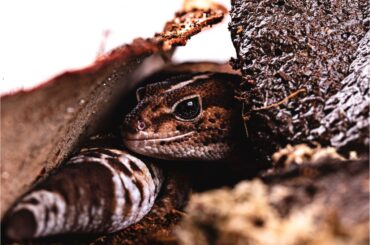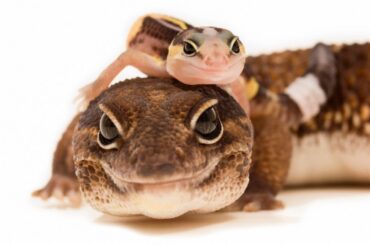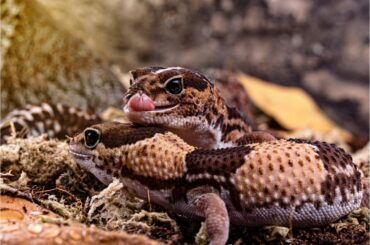Curious about your crested gecko’s poop’s secret life? Are you ready to learn about crested gecko poop and become a responsible owner?
While it may not be glamorous, understanding their droppings can improve their health. This article will explain why monitoring their excrement is essential and how it can disclose nutrition and health information.
Crested geckos are cute, but like any pet, they need us. We can achieve that by monitoring their droppings. But why does it matter? Consider it your gecko’s health report.
Like humans, crested geckos can have dietary preferences and health issues manifest in their poop. By monitoring their poop, you can detect early signs of problems and make necessary adjustments to their diet and habitat.
The Role of Crested Gecko Poop
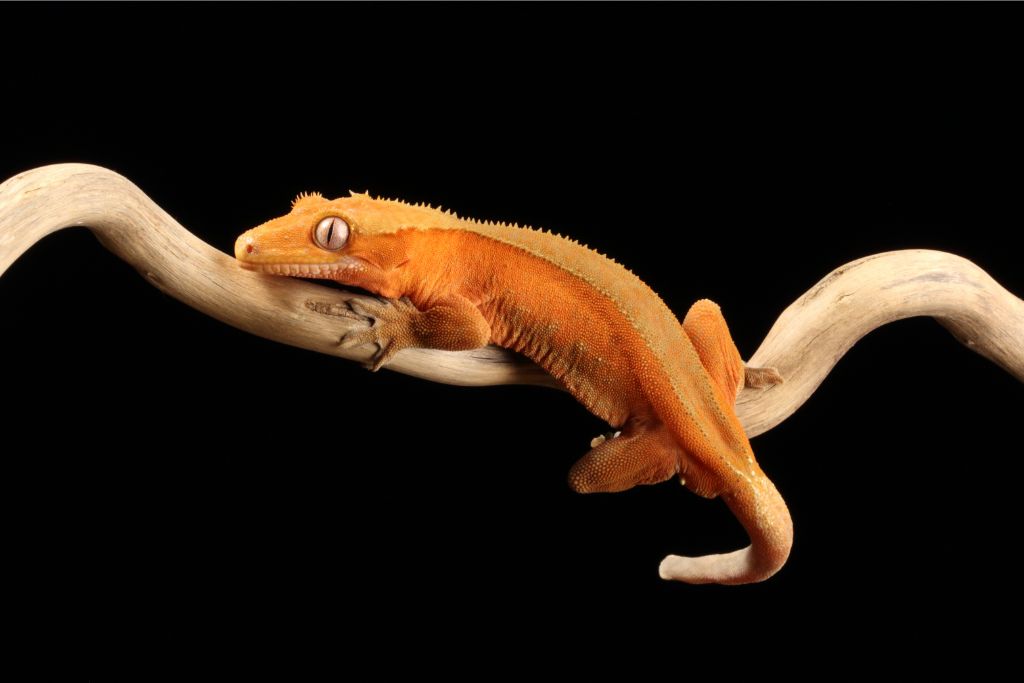
Crested gecko poop might not seem like an exciting topic, but it plays a crucial role in telling us about our little reptile friends’ health. If a crested gecko does its business, we can tell how it feels. For instance, unexpected excrement color or appearance may indicate a problem.
Check if the excrement is dry or watery. This suggests your gecko is dehydrated or has stomach issues. Also, suppose the poop looks hard or is a bit stuck. In that case, it might indicate that your gecko is constipated, which is uncomfortable for them.
Sometimes, if there are tiny moving things in the poop, it could mean your gecko has parasites. While it’s not fun, watching your crested gecko’s excrement can help you discover health issues early. This will keep your scaly companion happy and healthy.
Normal vs. Abnormal Poop
What does a normal crested gecko poop like? It is usually brown or dark in color and has a soft, moist texture. It looks like toothpaste or pudding. This poop is usually observed in its enclosure and indicates a healthy gecko digesting its diet.
Baby crested gecko poop typically has small, soft, and moist feces. They have brownish or black feces that resemble adult crested geckos.
Abnormal feces traits should also be monitored. First, your crested gecko’s red, green, or white feces may signal a health issue. Poop that’s dry and crumbly or watery and runny may also suggest problems.
Crested gecko diarrhea, characterized by loose, watery stools, is another concerning fecal abnormality. Diarrhea can lead to dehydration and is often a sign of gastrointestinal distress.
If your gecko’s poop occurs too frequently or not often enough, it could indicate an underlying problem. Pay attention to these abnormal poop signs to ensure your pet stays healthy and happy.
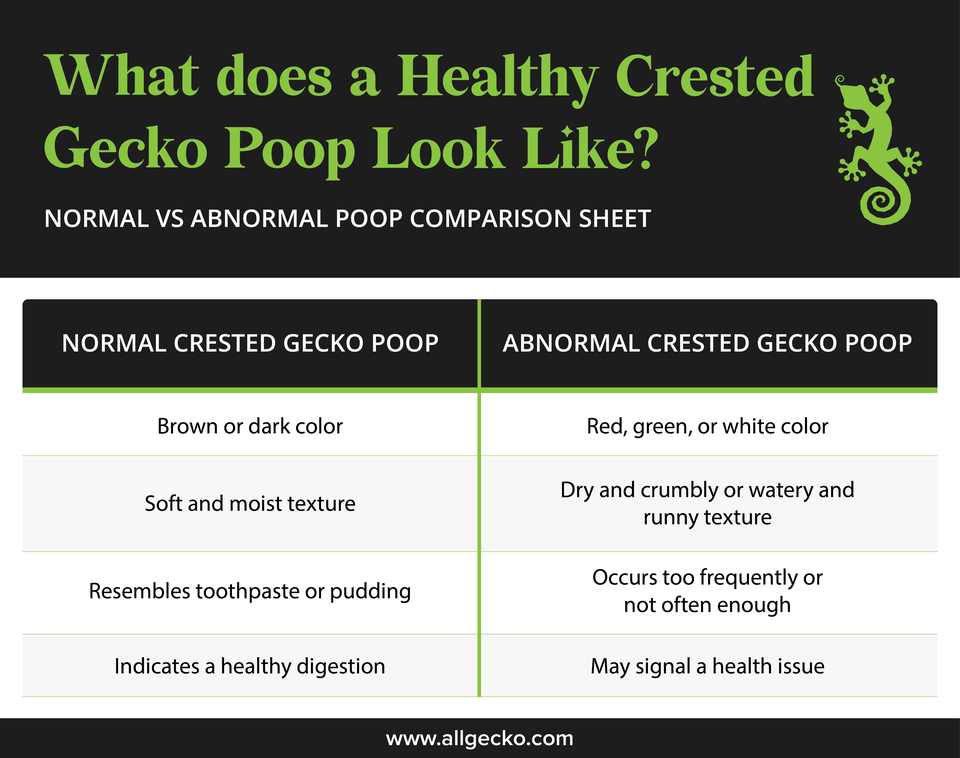
Interpreting Poop in Crested Geckos
A healthy crested gecko’s poop is usually brown or dark in color and has a soft, moist texture. It’s not too big or small; it’s just the right size for a gecko. The shape is like toothpaste or pudding; you’ll typically find it in their enclosure. Your gecko is healthy if its poop looks like this.
If your gecko’s poop is off, it may indicate an issue. Red, green, or white poop indicates a problem. Poop that is dry and crumbly or watery and runny may also be problematic. If your gecko’s excrement is unusually large or shaped, its digestion may fail. To keep your crested gecko healthy, monitor these feces traits.
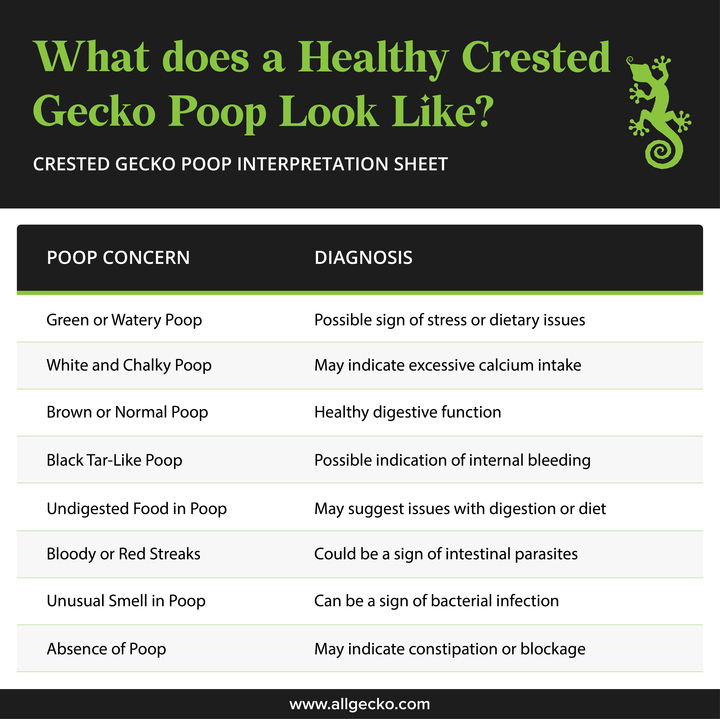
Frequency of Pooping
The frequency of pooping in crested geckos can vary, but there’s a general idea of what’s considered normal. Healthy geckos poop every 1 to 2 days. Your gecko pooping every other day is typical and indicates a healthy digestive system. Some geckos may poop more or less often as long as their waste appears healthy and their behavior is normal.
Remember that it may be an issue if your crested gecko stops pooping for a long time or poops rarely. If this is the case, it’s best to seek a reptile vet’s advice to ensure your gecko is healthy.
When to Seek Veterinary Care
Crested gecko owners must monitor their pet’s excrement to ensure its health. See a vet if your gecko’s waste changes color, consistency, or frequency. Good crested gecko excrement is brown or greenish-brown and solid. Get medical attention if it’s watery, bloody, or your gecko stops pooping.
If your gecko feels lethargic, loses weight, or has other weird behavioral and feces changes, it must be sent to the clinic. If you have worries about your crested gecko’s waste or health, a reptile veterinarian can identify and treat any abnormalities.
Preventative Care
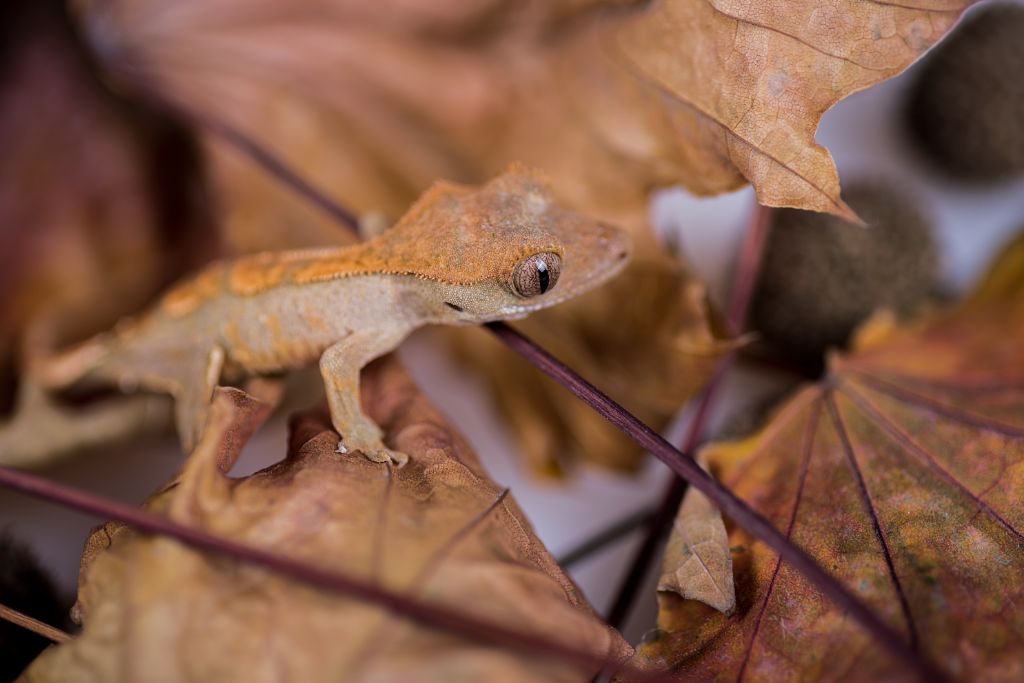
Maintaining a healthy diet and environment for your crested gecko is crucial to prevent poop-related issues. Here are some easy-to-follow tips to keep your gecko in top shape:
- Offer a Balanced Diet: Ensure your crested gecko gets a variety of foods, like commercial crested gecko diet, insects, and fresh fruit. This balanced diet will help prevent digestive problems.
- Proper Hydration: Always provide clean water for your gecko. Ensure they always have water access, as dehydration can cause constipation.
- Temperature and Humidity Control: Maintain the right temperature and humidity levels in their enclosure. Crested geckos thrive in a tropical environment, and the right conditions will help with digestion.
- Clean Environment: Clean their habitat by removing uneaten food and poop promptly. A clean enclosure prevents the growth of harmful bacteria.
- Regular Handling: Handle your gecko gently but regularly. This helps reduce stress and keeps them active, which is essential for good digestion.
- Observation: Pay attention to any changes in behavior or poop appearance. Catching issues early can prevent them from becoming significant problems.
Conclusion
It’s vital to stress the significance of keeping a watchful eye on and taking proper care of crested geckos. These fantastic creatures require a safe and happy home to thrive, like humans. By monitoring their health, cleaning and arranging their terrarium, and feeding them correctly, we can assist these little creatures to thrive.
Being a responsible crested gecko owner means showing them love and attention every day so they can enjoy a happy and healthy life by our side.
FAQs
How Many Days Can a Gecko Go Without Pooping?
Geckos can go without pooping for several days to a week. If they go longer without passing stool, it may indicate an issue that needs attention.
How Do I Know if My Gecko has Parasites?
Signs of parasitic infection in geckos may include weight loss, lethargy, diarrhea, abnormal feces, or visible parasites in the feces. Consult a veterinarian for a proper diagnosis if you suspect your gecko has parasites.
How Do You Know if Your Gecko is Constipated?
Signs of constipation in geckos can include a bloated or distended abdomen, lack of bowel movements for an extended period, discomfort, or straining while trying to defecate. If you suspect constipation, seeking veterinary advice for proper treatment is essential.
What Makes Geckos Sick?
Various factors can make geckos sick, including improper habitat conditions, poor diet, parasites, and infections.
What Does a Sick Gecko Look Like?
A sick gecko may be lethargic, lose weight, have odd skin or color, discharge from the eyes or nostrils, and hide or refuse to feed. Specific symptoms can vary based on the illness. Consulting a reptile veterinarian is essential for proper diagnosis and treatment.

